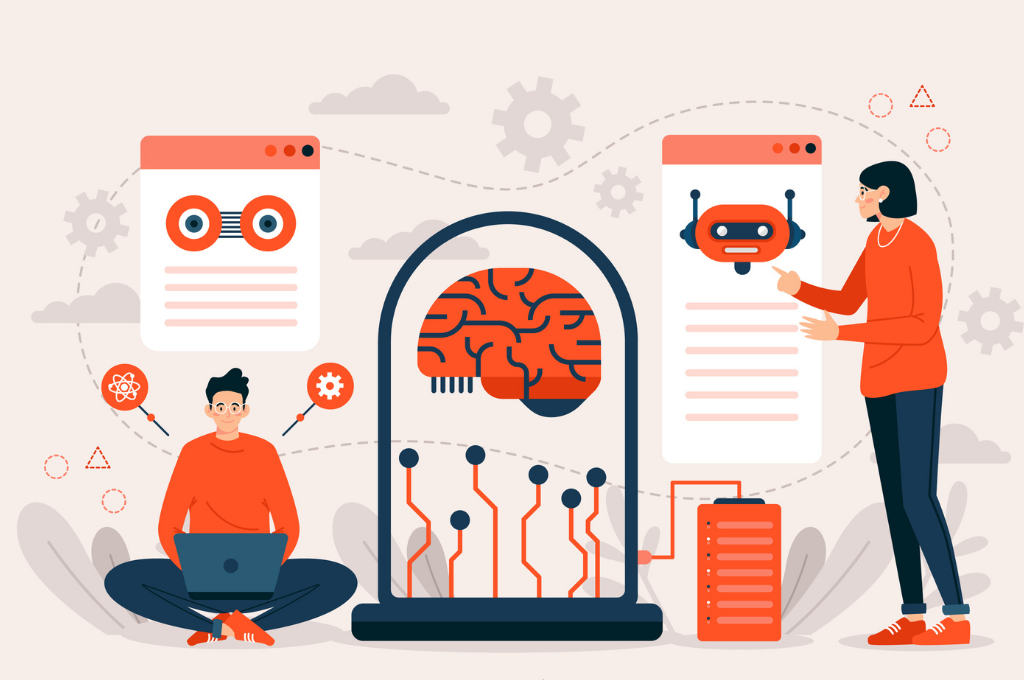In today's rapidly evolving business landscape, AI is more than a technological advancement; it is a revolutionary force reshaping how organizations function. As companies venture into the age of AI, they are discovering a new realm of possibilities that enhance efficiency, improve decision-making, and foster innovation. The integration of AI into business processes is redefining roles and responsibilities, forcing workers to adjust to a collaborative environment where people's abilities and machine capabilities support each other.

The benefits of using AI in business are diverse, ranging from automating routine tasks to offering profound insights through data analysis. This technology allows organizations to streamline operations, reduce costs, and boost productivity, allowing employees to focus on higher-value tasks that require creativity and strategic thinking. While we explore the advantages of AI in the workplace, it becomes clear that the future of work will be characterized by a symbiotic relationship between humans and artificial intelligence, creating a new synergy that drives success in the modern economy.
Impact of AI on Employment Positions
The introduction of AI into the professional field is causing significant shifts to job roles across multiple sectors. As AI technologies become increasingly sophisticated, they are assuming repetitive and mundane tasks, allowing employees to dedicate themselves to more strategic aspects of their work. This change enhances productivity and encourages innovation, as human workers are liberated from time-consuming duties and are able to dedicate their efforts to addressing challenges and decision-making.
Additionally, AI is creating new roles that did not come into existence before. These positions often require a mix of technical skills and domain-specific knowledge, such as AI ethics officers, data analysts, and AI trainers. This transformation in job roles not only mirrors the shifting nature of work but also emphasizes the need for continuous learning and upskilling among the workforce. As businesses adopt AI technologies, they are investing in tr ai ning programs to train employees with the essential skills to succeed in this new environment.
There are also worries about the loss of jobs due to AI implementations. While some traditional roles may shrink, many experts argue that AI will not completely supplant human workers but will rather enhance their capabilities. This collaboration between AI and humans can lead to enhanced job satisfaction, as employees participate in more fulfilling work and leverage AI tools to get greater results. The outlook of work will likely witness a collaboration that maximizes the strengths of both AI and human intellect.
Capabilities for the AI-Driven Labor Force
As businesses increasingly incorporate AI into their business models, the need for a new set of competencies is growing. Employees must adapt from classic roles to ones that enhance AI technologies. This involves analytical skills to interpret data and the ability to work alongside AI platforms. Understanding how to leverage AI instruments efficiently will be essential for boosting productivity and driving innovation in diverse industries.
Creativity and problem-solving are becoming increasingly valuable as AI dominates repetitive tasks. Workers are required to employ their particularly human traits to formulate solutions that AI cannot provide. This means that abilities such as critical thinking, adaptability, and collaboration will boost how individuals can operate in a space where AI automates many standard functions. Nurturing these capabilities will prepare the labor force to address complex problems and capitalize on AI's potential.
In addition, digital literacy is necessary in an AI-driven environment. Employees should be at ease with tech and willing to learn new tools that incorporate AI into operations. Ongoing learning and upskilling will be important, as the landscape of AI is always advancing. By fostering a culture of lifelong learning, organizations can ensure their workforce continues to be efficient and prepared to utilize AI advancements for improvement and productivity.
Moral Considerations in AI Implementation
The integration of AI in organizations brings with it substantial moral issues that companies must tackle to ensure responsible use. One major concern is the risk for bias in AI algorithms, which can lead to inequitable treatment of individuals based on race, sex, or other factors. Companies must dedicate themselves to transparency in their AI systems and continuously monitor for biased outcomes, ensuring that the technology serves all customers and employees equitably.
Another crucial aspect is the impact of AI on employment. While AI can enhance productivity and efficiency, it can also displace jobs, especially in routine tasks. Organizations should adopt a proactive approach by retraining their workforce and creating new roles that leverage human creativity and critical thinking, fostering a collaborative environment where humans and AI work together rather than in rivalry. This strategy not only helps mitigate job loss but also supports a culture of innovation and adaptability.
Additionally, data privacy and data security are paramount. As AI systems often rely on vast amounts of private data, organizations must implement stringent data protection measures and comply with regulations. Organizations should prioritize the responsible handling of data, ensuring that customers' information is used ethically and with consent. By addressing these moral considerations, businesses can harness the advantages of AI while maintaining trust and integrity in their operations.
